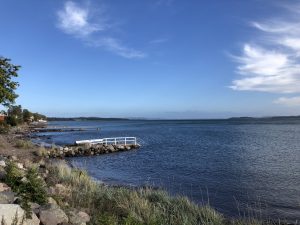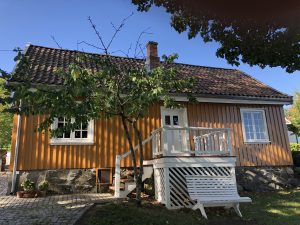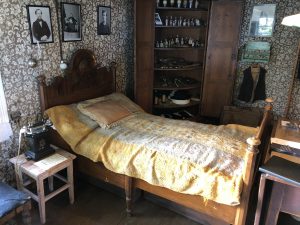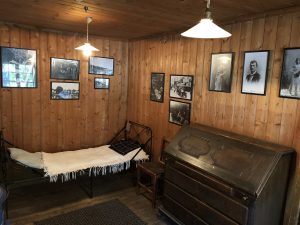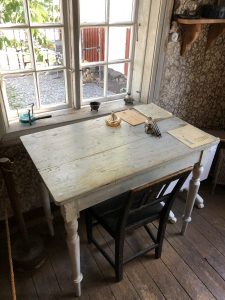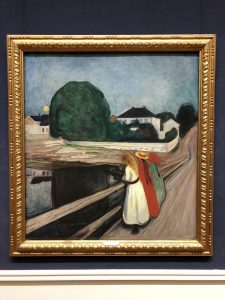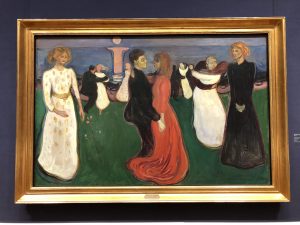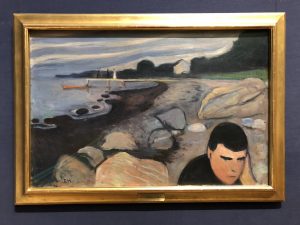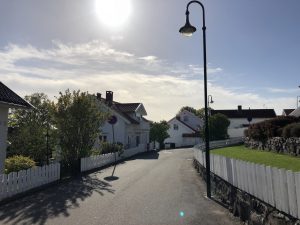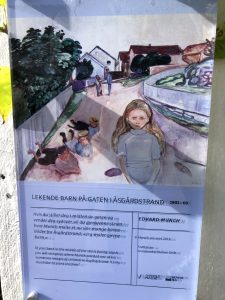On Thursday, September 20 we take a bus to Åsgårdstrand to visit the summer house of Norway’s most famous artist Edvard Munch. Åsgårdstrand is also called “sun coast” because of its beauty with the changing sunlight.
It is amazing that there was such a well-known person living in the place where is so near to our campus. Only 15 minutes of driving, we get chance to see the life how Munch lived before. Munch first came to Åsgårdstrand as a tourist in 1885. Later on, he decided to buy a house here in 1898 to be the place where he could stay in summer. This purchase provides Munch with a greater connection with the area. Munch’s house is now a small museum, open to the public where everything has been retained as it was when the artist lived there.
After the lecture, I learn the story that happened between Munch’s lover, his family and him in this house. There was even a shooting event occurred here. Later on, we go to the studio beside the house to see some copies of Munch’s paintings. The original studio building has been closed, but new building has been erected on the same site. Munch’s works are often considered undone because facial appearances of people in his paintings are usually vague. However, his pictures still inspired the development of modernism, both in his choice of themes and visual expression. He connected his personal experiences with radical artistic means.
Munch painted many of his masterpieces in Åsgårdstrand, such as The Bridge, Four girls in Åsgårdstrand and The Dance of Life. These paintings are now displayed in Nasjonalgalleriet in Oslo. We can clearly recognize the background is Åsgårdstrand because of the moonbeam across the sea and rock beach. I went to Nasjonalgalleriet to see these paintings in person recently. It is wonderful to compare the differences and similarities between now and then in those pictures which were painted in Åsgårdstrand because it’s like I’m living in the paintings.

